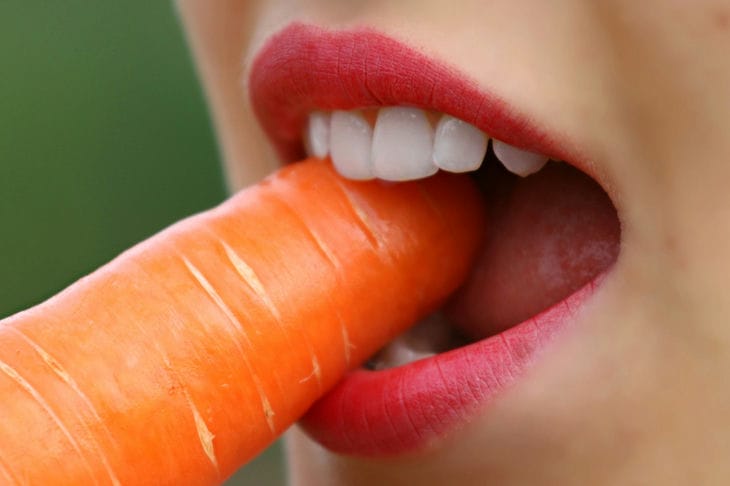Dentist Timur Basyrov told how nutrition affects dental health: proper nutrition and dental problems
Our food can have not only a positive but also a negative effect on our teeth.
Dentist Timur Basyrov told how nutrition affects dental health: proper nutrition.
Foods containing fruit acids and especially sugar can be very harmful to teeth. Sugar is the main food source for bacteria in the mouth, which produce acid as a by-product of metabolism.
Subsequently, it destroys the enamel and gives the “green light” to cariogenic bacteria.
The Effect of Food on Teeth
To maintain healthy teeth, it is not only important to brush them. Rational nutrition plays a big role. By eating, we nourish both our body and the bacteria that live in it.

They feed on sugars from the foods we eat. People who care about their health need to consume less easily digestible fast carbohydrates. After all, they "feed" the bacteria in our mouth and provoke the development of caries.
Separately, we can highlight products containing enamel-destroying orthophosphoric acid. It can be found in various sweet carbonated drinks.
Fruit acids in oranges, lemons and apples, when consumed in an uncontrolled manner, soften tooth enamel and increase the risk of its destruction.
Creating a sharp temperature difference is also harmful to the oral cavity. Drinking hot tea, followed by a glass of ice water can provoke the formation of microcracks, which will allow cariogenic bacteria to penetrate under the protective shell.
Proper nutrition and teeth. How much healthier is it?
Eating right means not only reducing the amount of sugar you consume, but also getting micro- and macroelements. Calcium, fluorine, vitamins B12 and C, and iron are good for your teeth.
Dairy products, kefir and cheese, rich in calcium, strengthen teeth and help restore enamel. These products include soy and green vegetables. To saturate the body with fluoride, you should eat sea fish, boiled potatoes and buckwheat. And vitamin C will improve blood circulation in the gums and strengthen them.
In addition, fibrous foods will clean the teeth from food debris. Cereals, vegetables and fruits stimulate the production of saliva. It neutralizes the acid in the oral cavity. It is also important to eat solid foods, especially for children, which will help to form the correct bite.
Chewing stimulates the growth of jaw bones, which is necessary when permanent teeth are erupting, so that the jaws are developed and there is enough space for all the teeth.
To summarize the above, I will note that proper nutrition is important for dental health. How to make food consumption beneficial for teeth:
- Reduce sugar intake: Limit sweets and drinks. This will reduce the risk of developing cariogenic bacteria in the oral cavity.
- Consuming foods rich in micro and macro elements to improve dental health.
- Increase your intake of solid foods.
- Introduce healthy eating habits: avoid snacking and eating before bed.
Dental problems with proper nutrition
In proper nutrition, as everywhere, it is necessary to maintain a balance. Therefore, it is important to eat citrus fruits and fresh berries correctly. If you really like oranges or lemons and often drink freshly squeezed juices, then you need to rinse your mouth afterwards.
The acid they contain affects the enamel, softening it and leading to increased tooth sensitivity.
In addition, increased acidity also affects the gastrointestinal tract. Therefore, doctors do not recommend drinking citrus juices on an empty stomach, and it is advisable to drink a glass of water afterwards. This also applies to berries: strawberries, raspberries.
Also, you shouldn't brush your teeth right after eating citrus fruits. This is due to the acid. Once in your mouth, it immediately begins to affect the enamel, which softens. Therefore, it is easy to damage it when brushing. It is better to rinse your mouth and brush your teeth after some time.
Those who follow a healthy diet and eat a lot of nuts may also have problems.
Do not open nuts or gnaw on the shells - this is fraught with mechanical damage to the enamel and restoration structures. Very hard food can damage fillings, crowns and veneers.
How to protect teeth from the negative effects of food
To protect teeth from the negative effects of food, you need to follow a diet. Do not eat a lot of food with high acid content and a lot of sugar.
Proper oral hygiene is recommended, rinsing the mouth after meals. It is also important to consume acidic foods in moderation and pay attention to the way you chew hard foods to avoid excessive mechanical impact on your teeth.
It is important to visit a general dentist and hygienist to improve the condition of the oral cavity and prevent the development of caries. It is important to carry out professional cleanings to remove deposits and hard plaque.
After all manipulations, conduct remineralizing therapy with coating with fluoride-containing varnishes and gels. This way, the teeth will receive the necessary minerals to fight caries.
Don't forget about home hygiene. It includes the correct technique of brushing teeth - movements should be circular and sweeping away from the gums, use of floss, irrigator.
This will help you remove food debris and accumulated bacteria. It is also important to choose the right toothbrush and toothpaste. If you do not know how to choose oral hygiene tools, consult your dentist.
Based on your clinical situation, the specialist will select the right toothbrush and toothpaste and give recommendations for oral care.
